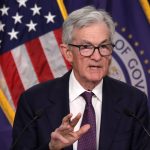REUTERS/Brian Snyder/File Photo
- President Trump’s coronavirus diagnosis has exposed the gravity of the pandemic and the ‘infodemic’ that Americans are fighting against.
- A history of inconsistencies in communication from the Trump administration is once again acting as an obstacle for the American public to be able to trust the White House’s updates.
- At the same time, misinformation online is creating even more confusion and distrust for the public.
- Visit Business Insider’s homepage for more stories.
In the hours following President Donald Trump’s announcement that he and the first lady had tested positive for coronavirus, confusion and misinformation emerged as the nation tuned in to updates on the president’s condition.
A history of inconsistencies and lack of transparency in the Trump administration’s approach to the pandemic have heightened distrust in updates on the president’s health which have been inconsistent and sewn confusion.
In September, Trump’s head Department of Health Human Services spokesperson Micahel Caputo, who took medical leave shortly after he spread conspiracy theories on Facebook — including one that claimed the coronavirus pandemic was exaggerated by the “fake news” media — was reported to delay CDC reports that was not in line with Trump’s political stance.
Also, last month, journalist Bob Woodward’s interviews with the president indicated that Trump knew about the deadly consequences coronavirus could have as early as February as he downplayed the pandemic to the American public.
Over two-thirds of Americans recently said they “do not trust what Trump says about the coronavirus pandemic,” according to an ABC News/Ipsos poll published last month. In addition, 62% of American adults fear that political pressure from the Trump administration would “lead the FDA to rush to approve a coronavirus vaccine without making sure that it is safe and effective.”
Misinformation is rampant in the ‘infodemic’
The World Health Organization said in August that the world is not only battling the coronavirus pandemic but also an “infodemic,” where an abundance of misinformation proliferates rapidly online. The infodemic has already manifested into a number of deadly consequences: For example, an American Journal of Tropical Medicine and Hygiene study found that at least 800 people around the world died after acting on disinformation on a false coronavirus cure.
Cornell University researchers recently found “that Donald Trump was likely the largest driver of the COVID-19 misinformation ‘infodemic.'”
Early in the pandemic, Trump suggested scientists look into whether there was a way to inject disinfectant into human bodies to kill the coronavirus. Although the president brushed off the next day that he was being sarcastic, the misinformation presented at an official White House coronavirus press briefing put Americans in danger – a Kansas man consumed cleaning products days after Trump’s statement.
In July, Trump shared a video containing false information about cures for coronavirus. The video was removed by Facebook, YouTube, and Twitter – but not before it had already accumulated over 14 million views on Facebook.
Trump has also amplified QAnon. QAnon is a far-right conspiracy movement that was identified as a domestic-terrorist threat by the FBI, on a number of occasions. In an August White House press briefing, Trump responded to questions on the QAnon movement and said although he didn’t “know much about the movement,” but added that “they like me very much, which I appreciate.” The president did not denounce the movement but embraced them as “people who love our country.”
Most recently, far-right QAnon supporters, along with some progressives, were among those on social media circulating conspiracy theories about the president’s health after he announced his COVID-19 diagnosis.
In addition, concerns on Russian actors proliferating disinformation in the wake of Trump’s health status is rampant. Since Trump announced he tested positive, a Russian state-backed television channel tweeted a misleading story that Biden — who tested negative for coronavirus Friday — coughing in the debate was concerning, according to the AP.
- Read more:
- 5 ways to determine if you’ve received accurate coronavirus information, according to an epidemiologist
- QAnon, the far-right, and some left-wingers are all spreading conspiracies about Trump’s COVID-19 diagnosis
- A Kansas man consumed cleaning products last weekend after Trump mused that injecting disinfectants might help fight the coronavirus
- Russia has been publishing English-language articles to spread COVID-19 disinformation to Americans, US officials said. It could skew the 2020 elections as it did in 2016.
Powered by WPeMatico






